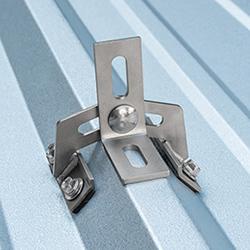DOE/Alliance to Save Energy Powerful $avings Campaign Launches Radio PSAs to Educate Consumers on Lowering Energy Bills
The Powerful $avings campaign is aimed at helping consumers reduce their energy bills and helping the nation reduce its overall energy use through energy efficiency.
Washington, DC, October 2005 - As part of their continuing Powerful $avings campaign, the Department of Energy (DOE) and the Alliance to Save Energy have launched a series of radio public service announcements (PSAs) to educate consumers on how to save money on energy bills by being energy-efficient.
"The Powerful $avings campaign is aimed at helping consumers reduce their energy bills and helping the nation reduce its overall energy use through energy efficiency," said Energy Secretary Samuel Bodman. "As U.S. consumers face higher energy prices this winter, the new PSAs from DOE and the Alliance to Save Energy are telling consumers, 'You have the power to make a difference.'"
The Powerful $avings campaign provides these energy- and money-saving tips to help offset anticipated high natural gas and heating oil prices for the coming winter:
� Properly maintain your heating system. Heating can account for almost half of the average family's winter energy bill. Make sure your furnace or heat pump receives professional maintenance each year, and clean or replace filters regularly. A heat pump can cut electricity use for heating by 30 to 40 percent.
� Plug air leaks with caulking, sealing, or weather stripping to save 10 percent or more on your energy bill. On a windy day, hold a lit candle next to windows, doors, electrical outlets, and light fixtures to test for leaks. Also, tape clear plastic sheeting to the inside of your window frames if drafts, water condensation, or frost are present.
� Adequate insulation in your attic, ceilings, exterior and basement walls, floors, and crawlspaces, as recommended for your geographical area, can save you up to 30 percent on home energy bills. For more information, visit www.simplyinsulate.com.
� Insulate heating ducts, too, and keep them in good repair to prevent heat loss. Your system can lose up to 60 percent of its warmed air before it reaches the register, if ducts are not properly insulated in unheated areas such as attics and crawlspaces. Also insulate your hot water heater and hot water pipes.
� Cut your energy bills by up to 30 percent with ENERGY STAR-labeled products. Look for the ENERGY STAR label, the government's symbol for energy efficiency, when replacing your heating and cooling systems - as well as appliances, lighting, windows, office equipment, and home electronics. Find retailers near you at www.energystar.gov.
� Install a programmable thermostat. Programming your thermostat from 72 degrees to 65 degrees for eight hours a day while no one is home, or while everyone is tucked in bed, will cut your heating bill up to 10 percent, paying for the cost of a basic unit in less than a year.
� Use compact fluorescent light bulbs (CFLs) in place of comparable incandescent bulbs to save about 50 percent on your lighting costs. CFLs use only one-fourth the energy and last up to 10 times longer.
� Install storm windows over single-pane windows or replace them with double-pane windows with low-emissivity (low-e) coating. Storm windows reduce heat loss by 25 to 50 percent, and storms with low-e coating that reflects heat back into the room during the winter months save even more energy. Look for the Energy Star label, too, to maximize savings. In cold climates, low-e windows can reduce your heating bills by 36 percent compared to uncoated, single-pane windows, according to the Efficient Windows Collaborative (www.efficientwindows.org).
� Turn off kitchen, bath, and other ventilating fans within 20 minutes to retain heated air. When replacing exhaust fans, consider high-efficiency, low-noise models.
� A few carefully positioned trees around the house can cut as much as 25 percent off your household's yearly energy consumption for heating and cooling. Just three strategically placed trees can save an average household between $100 and $250 in energy costs annually.
� Open curtains on your south facing windows during the day to allow sunlight to naturally heat your home, and close them at night to reduce the chill you may feel from cold windows.
� Close fireplace dampers when not in use. When in use, reduce heat loss by opening dampers in the bottom of the firebox (if provided) or open the nearest window about an inch, close doors to the room, and lower thermostat setting to 50-55 degrees.
� Install timers on lights inside your home to avoid coming home to a dark house on winter evenings. For outdoor lights, a combined photocell and motion detector will improve home security while reducing energy costs.
� Turn off everything not in use - lights, TVs, VCRs, CD and DVD players, computers.
� DOE's Energy Savers - Tips on Saving Energy & Money at Home is available in both English and Spanish versions at www.energysavers.gov or 1-877-337-3463.
� The Alliance's free booklet, Power$mart - Easy Tips to Save Money and the Planet, can be ordered by calling 1-888-878-3256. An animated version can be previewed at www.ase.org/powersmart.
Featured Product

QuickBOLT - Expand Your Services
Explore new lines of income for your solar installation business with QuickBOLT's Stone Coated Steel roof mounts designed in partnership with metal roof manufacturers themselves. These SCS roof mounts work on all metal tile profiles and will help you bring in money you're missing out on. By not driving into the roofing material, QuickBOLT's Stone Coated Steel roof hooks maintain the integrity of the roof. Install with ease and confidence knowing your roof is protected against the harsh elements that these hooks are designed for.
